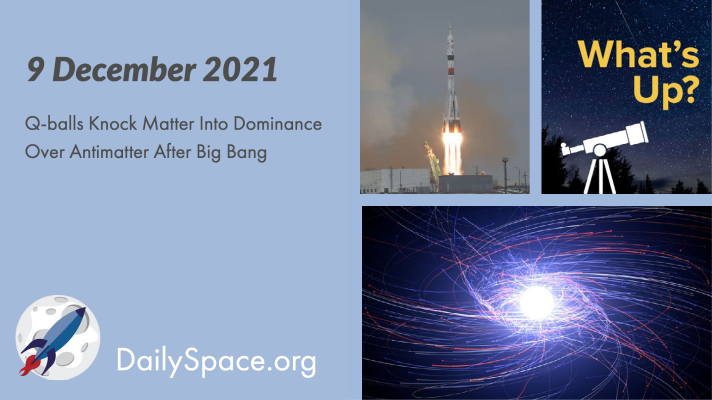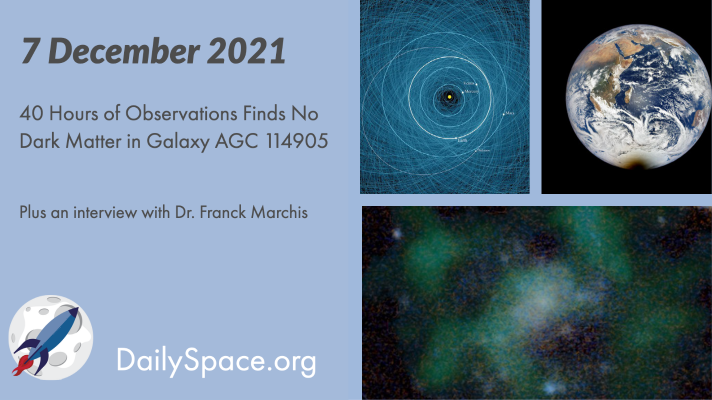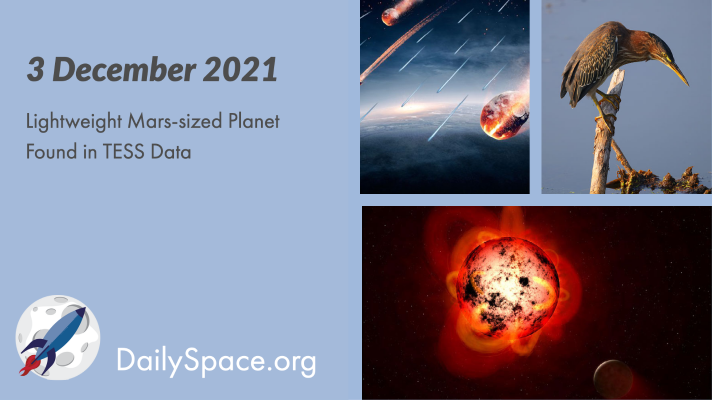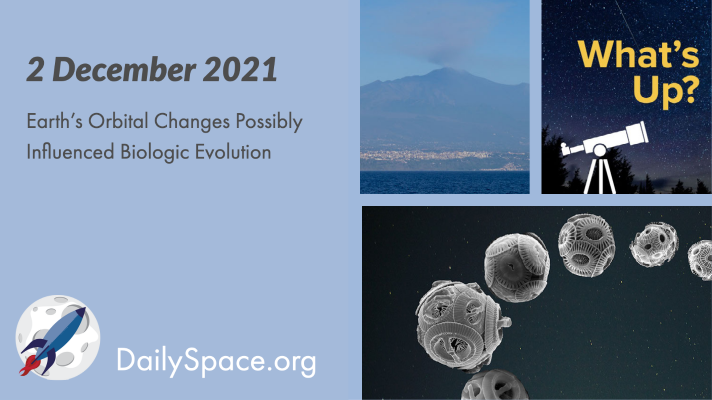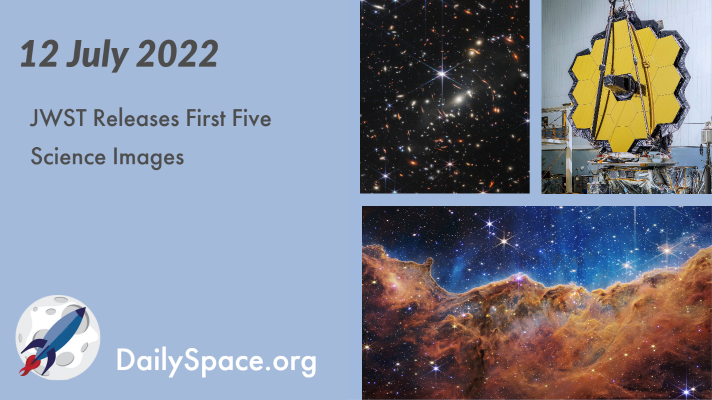
JWST Releases First Five Science Images
Starting with the stunning release of JWST’s first image of galaxy cluster SMACS 0723 on July 11, the bonanza continued the morning of July 12 with newly released images of Stephan’s Quintet, the Carina Nebula, the Southern Ring Nebula, and exoplanet WASP-96b. Plus, that controversial name and what’s ahead for the newest space observatory.
Catch us on NowMedia TV
Saturday 11pm Central / midnight Eastern
Sunday 10pm Central / 11pm Eastern
Watch live on these stations: Houston 21.10, Atlanta 22.10
or tune-in on Apple TV, Roku, YouTube Live, or Amazon Prime
Q-balls Knock Matter Into Dominance Over Antimatter After Big Bang
Researchers hypothesize that blobs in post-Big Bang fields of energy, known as Q-balls, could explain how matter came to dominate over antimatter in our Universe, and they plan to use gravitational waves to find their evidence. Plus, a crewed launch to the ISS features Japanese tourists, NASA selects the latest astronaut class, and What’s Up is the Geminids.
Rocket Roundup for December 8, 2021
In this week’s Rocket Roundup, we have more Starlink, European navigation satellites, a Chinese company launching to orbit again, a large U.S. government satellite, and a sounding rocket from Sweden. Plus, this week in rocket history, we look back at Little Joe 2.
40 Hours of Observations Finds No Dark Matter in Galaxy AGC 114905
Astronomers using the Very Large Array in New Mexico spent 40 hours observing galaxy AGC 114905, which seemed to have little to no dark matter in 2019 observations. The new evidence shows there is no dark matter in the galaxy at all. Plus, more Hubble and JWST updates, an eclipse over Antarctica, and an interview with Dr. Franck Marchis about citizen science.
Lightweight Mars-sized Planet Found in TESS Data
A Mars-sized planet was found just 31 light-years away, orbiting its star every eight hours and having 55 percent the mass of the Earth, leading scientists to conclude it’s mostly made of an iron-nickel core. Plus, water on Earth, a huge comet, and a review of a Canon lens.
Earth’s Orbital Changes Possibly Influenced Biologic Evolution
An analysis of over nine million samples of coccoliths whose ages span several million years has led scientists to conclude that changes in Earth’s orbit may have influenced changes in the size and shape of the microscopic algae. Plus, Europe contemplates geologic threats, and a comet is in this week’s What’s Up.
Rocket Roundup for December 1, 2021
During this jam-packed episode of Rocket Roundup, we cover several Chinese launches, SpaceX’s launch of NASA’s DART mission to hit an asteroid, and Russia’s launch of a military satellite. Plus, this week in rocket history, we look back at Pioneer 10’s encounter with Jupiter.


 We record most shows live, on Twitch. Follow us today to get alerts when we go live.
We record most shows live, on Twitch. Follow us today to get alerts when we go live.

